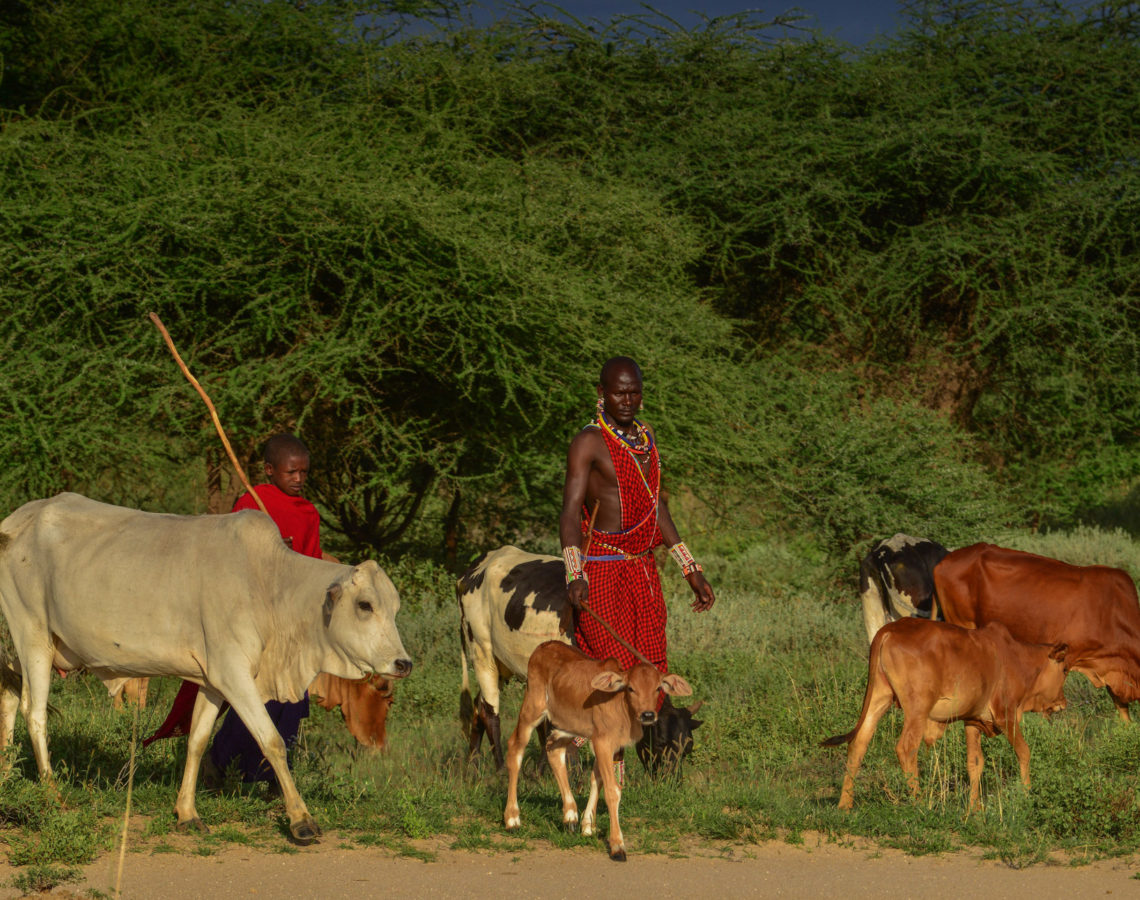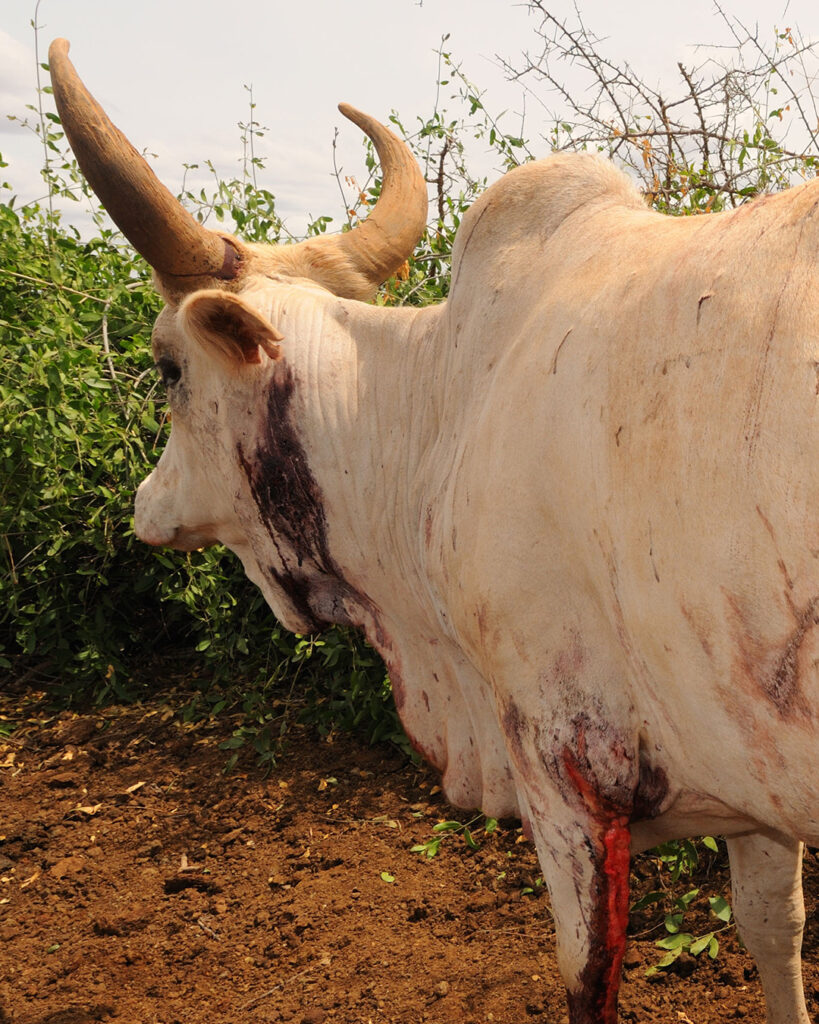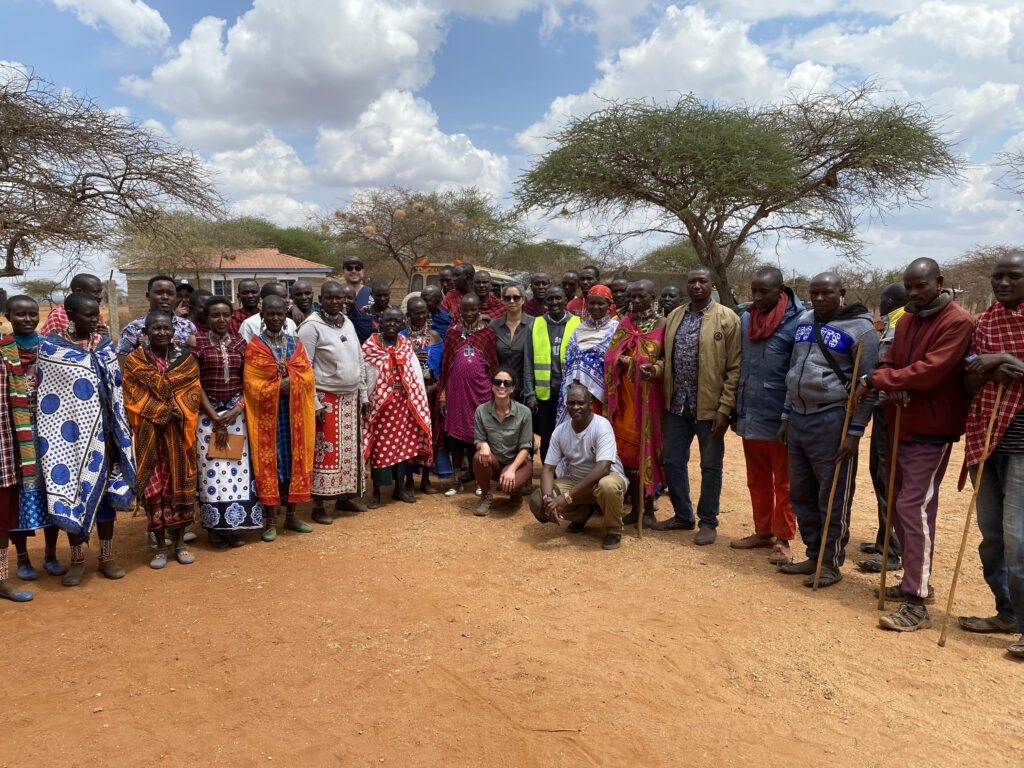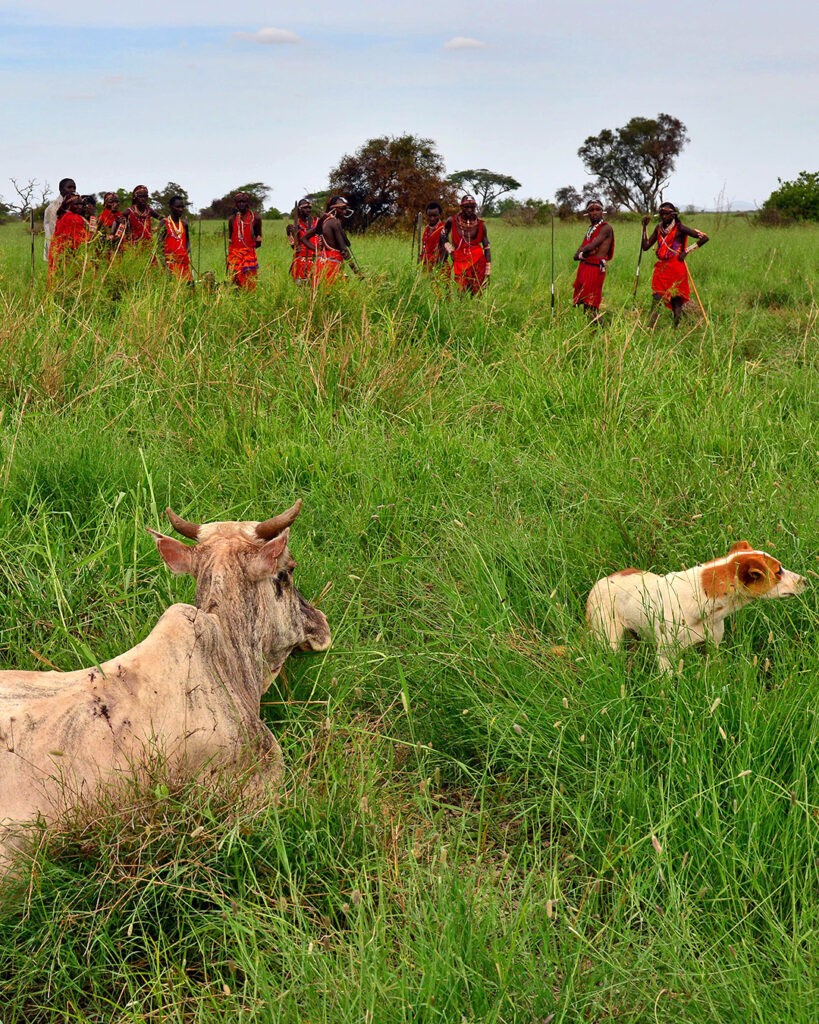Treating Wounds from Lion-Livestock Conflicts

Alongside the flourishing lion numbers, lion-livestock conflict is on the rise in the Amboseli ecosystem. Lions attack livestock both during the day while they are being herded and sometimes breaking into livestock enclosures at night. While herders try to protect their animals using lion deterrents, some livestock are left with serious injuries that, if untreated, can result in death.
Recognizing this challenge, in 2017, we launched a Livestock Wound Washing and Treatment program as part. Guardians use basic supplies like Alamycin, Povidone-Iodine, and clean water to clean and treat wounds, helping save the lives of many injured livestock. This program has provided significant support to the communities that we work closely with.

Lions do not recognize human boundaries, and conflicts often spill over into neighboring communities outside our area of operations. In 2020, a group of six lions broke into a boma (livestock enclosure) in Kunchu, an area beyond our boundaries. The attack resulted in the death of a cow and serious injuries to a bull, both owned by a local chief. Given his position and the significant losses, we were concerned that the incident could incite retaliatory action from the community. Responding quickly, we worked to calm tensions, promising to treat the injured bull. For a week, Guardians visited the home to wash and treat the wounds; the bull recovered!
Fast forward to July 2024: we held a large community meeting in Kunchu to reintroduce our programs, including injured livestock treatment, lion monitoring, and herder alert systems. To our surprise, the chief spoke up during the meeting and shared his experience, saying:
“My fellow community members, fear is a powerful emotion for both humans and livestock. I was deeply worried when my bull couldn’t stand after the attack, but this organization stepped in, treated my bull, and saved its life. I later sold it for Ksh 90,000. As your leader, I urge you to cooperate with conservation groups like this—they truly work for our benefit.”
This acknowledgment was a powerful testament to the Livestock Wound Washing and Treatment program’s impact. We remain grateful to the International Veterinary Network for their recent refresher training on wound care and their dedication to supporting the well-being of both livestock and people in our communities.





Leave a Reply